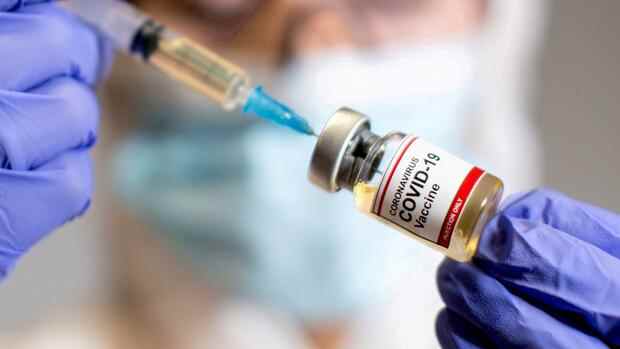Frankfurt The French vaccine developer Valneva is raising new hopes for a possible approval of its vaccine with positive data for its Covid vaccine. According to initial results from a phase 3 study, the vaccine candidate from Valneva generates a higher antibody concentration than the already approved vaccine from Astra-Zeneca – and that with fewer side effects. The company’s share rose by around 40 percent in response to the report.
The Valneva product is the first dead vaccine against Covid developed in Europe. In this classic and long-established vaccination technology, the actual vaccine material consists of inactivated pathogens, in this case Sars-CoV-2 viruses.
The Valneva vaccine has therefore been traded as a potentially interesting offer for vaccine skeptics for a long time. They do not trust the vaccines that have already been approved because they are all based on newer genetic mechanisms such as mRNA or modified viruses that transport DNA into the cells (vector vaccines). The Valneva product, it is hoped, could help increase vaccination rates even further.
In view of the data, company boss Thomas Lingelbach was extremely confident that the vaccine could receive approval in Europe in the coming year – and announced that he would immediately apply for a rolling approval process at the European drug agency Ema. “All the signs point in the right direction. We are confident that we can make a contribution to combating the pandemic by offering an alternative solution for people who have not yet been vaccinated, ”said Lingelbach.
Top jobs of the day
Find the best jobs now and
be notified by email.
The Valneva vaccine is already in a rolling approval process in the UK. However, the British government terminated a supply contract with the manufacturer in September, which was a major setback for Valneva and its shares.
In view of the positive study data, Lingelbach now sees his company in a significantly better position with a view to possible delivery agreements. He hopes to accelerate the hitherto rather sluggish negotiations on a supply contract for the vaccine with the EU. The company had already started talks with the EU in January about the delivery of up to 60 million cans. “We also have a lot of discussions with other countries,” said Lingelbach.
Study director calls results “impressive and extremely encouraging”
According to the company, in a comparative study, the vaccine generated about 40 percent higher antibody concentrations than the already approved AZD1222 vaccine from Astra-Zeneca. The number of infections was the same in both groups, with no serious illnesses occurring. The analysis also showed that the vaccine produced a broad T-cell response and was associated with fewer side effects. Study leader Adam Finn, who works full-time as a professor at the University of Bristol, therefore rated the results as “impressive and extremely encouraging”.
With its vaccine candidate, Valneva is lagging behind both the already approved Covid vaccines and some other laggards. After the Tübingen-based Curevac withdrew its vaccine last week, Ema currently has four vaccine candidates in the rolling approval process: the protein-based vaccines from Novavax and Sanofi / GSK, the Russian vector vaccine Sputnik V and a dead vaccine from the Chinese Sinovac, however showed relatively weak impact data in practical use in South America and Asia.
In the clinical study, the Valneva vaccine produced a significantly higher antibody concentration in test subjects than the Sinopharm product. Lingelbach attributes this mainly to the fact that you have coupled your own vaccine with a potentiator (adjuvant) from the US company Dynavax.
The fact that the vaccine is produced in a facility that has already been certified for such production could also prove to be an advantage in the approval process for Valneva. The other products that are currently in the rolling approval process are all produced in plants that have not yet had vaccine approval.
Valneva’s Phase 3 study is the first Covid vaccine study in Europe to directly compare a vaccine with a competing product rather than a placebo. According to Lingelbach, the primary endpoints were coordinated with the regulatory authorities of the EU and Great Britain. With antibody production, which is superior to Astra-Zeneca, and a comparable response rate (seroconversion rate) of over 95 percent, the agreed approval criteria have been met in principle.
A total of 4,000 adults and 660 adolescents are included in the study. The antibody concentrations have so far been measured in around 1000 study participants. In New Zealand, Valneva has now started another study with older people.
More: Hype about the vaccine stock Valneva is picking up speed again
